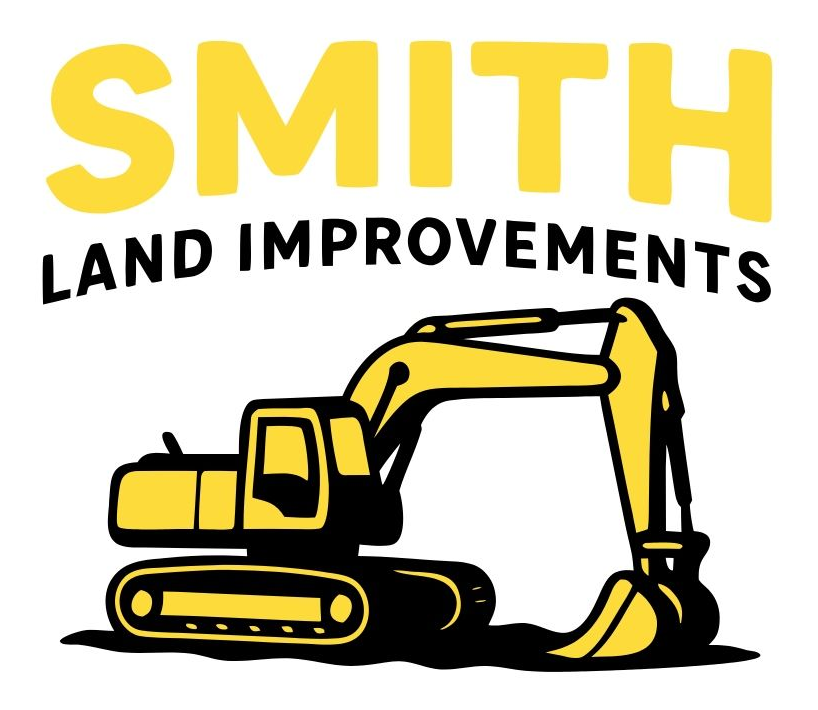Site Prep Services detail in Eupora, Mississippi
Preparing the Groundwork for Lasting Success
When starting a construction project, the most critical phase is proper site preparation. Before a foundation can be poured, utilities installed, or structures built, the land must be carefully evaluated, leveled, and made ready for the demands of long-term construction. Smith Land Improvements, backed by over 15 years of experience, brings professional site prep solutions designed to meet the unique challenges of terrain all across Eupora, Mississippi, and surrounding areas, including Indianola, Yazoo City, Cleveland, Meridian, Clarksdale, Madison, and Ridgeland.
Eupora and the surrounding areas often feature a variety of soil types, uneven land, and vegetation that can make construction difficult if not properly managed. Site preparation eliminates these obstacles by creating a stable, well-drained, and structurally sound foundation for your project. Whether it’s a residential home, a commercial building, or an agricultural development, the first step is ensuring the land is ready for safe and efficient construction.
Our expertise lies in removing barriers such as brush, trees, and debris, followed by grading, leveling, and soil stabilization. These steps prevent costly setbacks later and ensure compliance with local regulations. In Webster County, where weather and soil conditions can vary dramatically, professional site prep also reduces risks of erosion, drainage problems, and foundation instability. Trust us to make your land construction-ready with precision and care.
Our Site Prep Services
1.
Land Clearing
Trees, brush, stumps, and debris are removed to create an open and usable worksite. Clearing ensures safe and efficient construction access while preparing the land for grading and excavation. This process reduces safety hazards, improves accessibility for machinery, and sets the stage for precise earthwork.
2.
Grading and Leveling
Precise grading creates an even surface for construction while ensuring proper drainage. The land is shaped to exact specifications, preventing water pooling and soil erosion. Accurate grading improves structural reliability and provides a balanced surface that enhances the performance of future foundations and pavement systems.
3.
Soil Stabilization
Soils can vary in strength, making stabilization essential for reliable site preparation. This service enhances soil durability, ensuring it can support heavy loads and long-term structural integrity without risk of settlement. Stabilization techniques also minimize shifting and improve compaction results, creating a dependable surface for future construction.
4.
Erosion Control
Erosion can compromise land stability and construction timelines if not addressed. Protective measures such as silt fencing, terraces, and soil reinforcement are implemented to reduce soil displacement. These controls maintain site integrity, safeguard surrounding areas, and promote sustainable land management throughout the construction process.
5.
Utility Preparation
Before construction begins, preparation is completed for utility installations by trenching and planning layouts for water, sewer, and electrical systems. Proper utility prep streamlines the building process and reduces complications. This ensures accurate placement, minimizes disruptions, and supports efficient integration of essential infrastructure.
6.
Foundation Preparation
Excavation, compaction, and site conditioning are performed to ready the land for foundation work. Proper foundation preparation ensures long-term structural stability and reduces the risk of shifting or cracking. This stage provides a dependable base that supports load-bearing structures and protects against uneven settling.
Benefits of Professional Site Prep
Strong Foundation Support
Proper site preparation ensures any project starts on a stable base. By removing weak soils, compacting the ground, and grading accurately, future structures are supported in the long term, reducing the risks of settlement or foundation cracking. A strong foundation also enhances structural durability, enabling buildings to withstand environmental stresses more effectively. This step is essential for both residential and commercial construction.
Improved Drainage Control
Drainage is a critical concern in areas with heavy rainfall seasons. Site prep services incorporate grading and slope management that direct water away from structures, preventing flooding, erosion, and long-term water damage. Effective drainage planning safeguards both the property and nearby landscapes. Controlled runoff also reduces soil displacement and preserves long-term stability.
Enhanced Safety on Site
Clearing debris, leveling the land, and stabilizing the soil minimize hazards during construction. Safe worksites allow equipment and crews to operate efficiently, reducing accidents and costly delays. Eliminating obstacles and uneven terrain promotes a smoother workflow. A secure site also decreases risks associated with heavy machinery operations, ensuring construction proceeds without unnecessary interruptions.
Compliance with Local Regulations
Building regulations require proper site preparation. Professional services ensure projects align with codes, zoning requirements, and environmental guidelines before construction begins. Adhering to regulations minimizes delays caused by inspections or approvals. Compliance also establishes credibility, reducing legal risks and ensuring projects progress smoothly through official oversight.
Long-Term Cost Savings
Investing in site preparation prevents future problems, such as drainage failures, erosion, and structural instability. By addressing these issues early, costly repairs and project setbacks can be avoided in the future. Strong preparation lowers maintenance expenses for property owners. It also minimizes unexpected costs that often arise when site conditions are overlooked.
Increased Property Value
Well-prepared land not only supports new construction but also adds to the overall value of the property. Buyers and developers recognize the importance of a properly prepped site as a strong selling point. Clean, level, and stable land increases market appeal. This advantage often translates into faster sales and better long-term investment returns.
Creating Stability Through Professional Preparation
Every successful construction project begins long before the first brick is laid. Proper site preparation transforms raw land into a safe, stable, and construction-ready foundation. In Mississippi’s varied landscape, skipping site prep often leads to drainage issues, soil instability, and costly delays. By investing in professional site preparation, you safeguard your project’s success, value, and longevity. Smith Land Improvements brings over 15 years of expertise in preparing land across Eupora, Mississippi, and nearby areas, including Starkville, Grenada, West Point, Columbus, Greenwood, Oxford, Tupelo, and Canton. From clearing and grading to soil stabilization and erosion control, we take a comprehensive approach that ensures your land is ready for any building challenge. Our focus on precision, compliance, and quality sets us apart as trusted excavation contractors in Mississippi. With local expertise, modern equipment, and a commitment to excellence, we ensure your project gets off to the right start.
FAQs
Why is site preparation important before construction?
Site prep creates a stable, level, and safe surface for construction. It prevents erosion, drainage problems, and foundation failures, ensuring projects remain structurally sound and compliant with building codes. Without it, structures are vulnerable to long-term instability. Proper preparation also streamlines future construction phases, saving time and resources.
How long does the site prep process usually take?
The timeline depends on project size and land conditions. A small residential lot may take a few days, while larger commercial projects can require several weeks. Factors like weather, soil type, and vegetation density influence duration. A detailed site evaluation provides the most accurate scheduling.
What equipment is used for site preparation?
Excavators, bulldozers, graders, and compactors are commonly used to clear, level, and stabilize the land. Equipment selection depends on soil composition and project requirements. Advanced machinery allows for precise grading and compaction, ensuring a durable surface. The right tools also reduce project delays and improve efficiency.
Does site prep help with drainage problems?
Yes. Professional grading and slope adjustments ensure water flows away from foundations and structures. Proper drainage reduces flooding risks and prevents costly water damage. Drainage planning also protects surrounding landscapes, helping maintain soil stability. Addressing water flow issues early can prevent structural and landscaping problems later.
Can you handle rocky or heavily wooded areas?
Absolutely. Specialized techniques and equipment enable the effective clearing of dense vegetation, stumps, and rocky terrain. Even challenging landscapes can be made construction-ready with the right preparation. Removing these obstacles ensures smoother project progress and safer working conditions throughout the construction process.
Is site prep required for small projects like sheds or driveways?
Even small projects benefit from site preparation. Proper leveling and drainage prevent shifting, cracking, and water damage. Skipping prep can shorten the lifespan of structures. By addressing soil and slope conditions early, smaller builds gain the same stability as larger projects.
How much does site preparation cost?
Costs vary depending on lot size, vegetation density, and required services. Customized quotes are provided after evaluating the land. While upfront expenses exist, site prep prevents costly future repairs. Long-term savings come from improved drainage, reduced erosion, and fewer foundation issues.
Do you follow environmental guidelines during site prep?
Yes. Local and state environmental regulations, including erosion control and soil conservation practices, are strictly adhered to. Responsible site work protects ecosystems and preserves the surrounding land. Compliance ensures projects avoid penalties while promoting sustainable building practices. This approach strikes a balance between development and environmental care.

